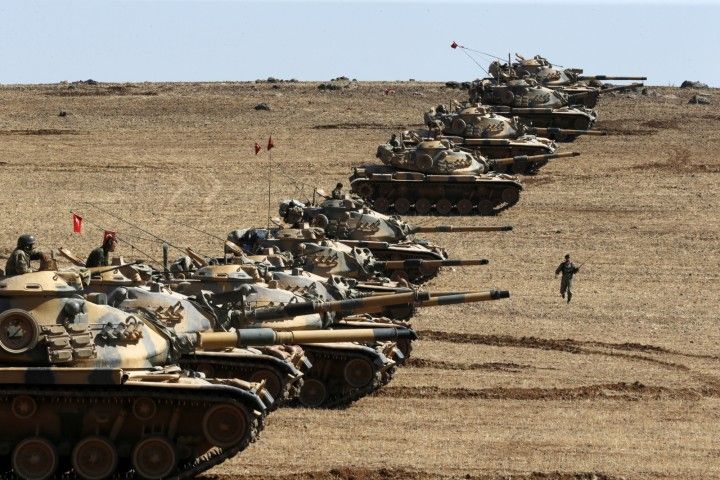The strategy against the Islamic State of Iraq and the Levant is working, but degrading and destroying the terror group will require “strategic patience,” Army Gen. Lloyd J. Austin III said today.
Austin, the commander of U.S. Central Command, told reporters at the Pentagon that Iraq remains the focus of operations for his command and the airstrikes against ISIL in Iraq are having an effect.
“The things that we’re doing right now in Syria are being done primarily to shape the conditions in Iraq,” Austin said. “Once the Iraqis are able to get a better handle on the situation inside of their country and regain control of their border, that will help to localize the problems a bit more.”
Airstrikes having effect
The airstrikes are having a decided effect on ISIL, the general said, but they’re just one part of the total U.S. whole-of-government effort in the region.
“We are enabling the efforts of the Iraqis in their fight against ISIL, acknowledging that, in addition to halting ISIL’s advance, the Iraqis must secure the border,” he said. “They must regenerate and restructure their forces to ensure that they are able to provide for the sovereignty of their country going forward. And this represents our main focus right now — enabling the efforts of the Iraqis.”
The airstrikes are targeting specific ISIL capabilities, Austin said. The strikes focus on ISIL command and control capabilities, the terror group’s ability to project combat power, and sustainment capabilities. The coalition is very careful to not cause civilian casualties in the attacks.
“Had we killed a lot of innocent civilians, and specifically in Sunni areas, I think that it is fair to say that we would be in a much different place at this point,” the general said. “But because we’ve done this the right way, we’ve secured the support of our Sunni Arab partners in the region. And together, we are making progress.”
The strikes have taken out ISIL’s communications equipment and their command centers, Austin said. Airpower has also hit vehicle parks, taking out enemy tanks, artillery, and armored personnel carriers.
Eliminating oil financing
The strikes also hit the underpinning of ISIL financial power, taking out oil refineries under ISIL control, the general said.
“By striking these types of facilities, we reduce their ability to generate the funds and the fuel required to sustain their operations,” Austin said. “And we are having the desired effects.”
Centcom believes the strikes are having an effect not only via battle damage assessments, but by changes in the enemy’s behavior and tactics, he said.
“We’re no longer seeing them move around the country in large convoys,” the general said. “Now they’re mostly traveling in civilian vehicles in smaller numbers. This is hindering their ability to mass and to shift combat power.”
ISIL also altered methods of communication, he said, which is inhibiting the terror group’s ability to coordinate and synchronize efforts.
Airstrikes will continue to degrade ISIL and Iraqi forces will continue to gain strength and cohesion, Austin said.
“We must remain focused and disciplined in our approach,” he said. “Most important, we must maintain strategic patience going forward. The campaign to destroy ISIL will take time and there will be occasional setbacks along the way, and particularly in these early stages of the campaign as we coach and mentor a force that is actively working to regenerate capability after years of neglect and poor leadership.”
The United States is in this effort for the long haul, the general said.
“We intend to defeat and ultimately destroy ISIL,” Austin said. “Even more important, we want to change conditions inside of Iraq and Syria so that what we see happening there now does not happen again in the future.”











